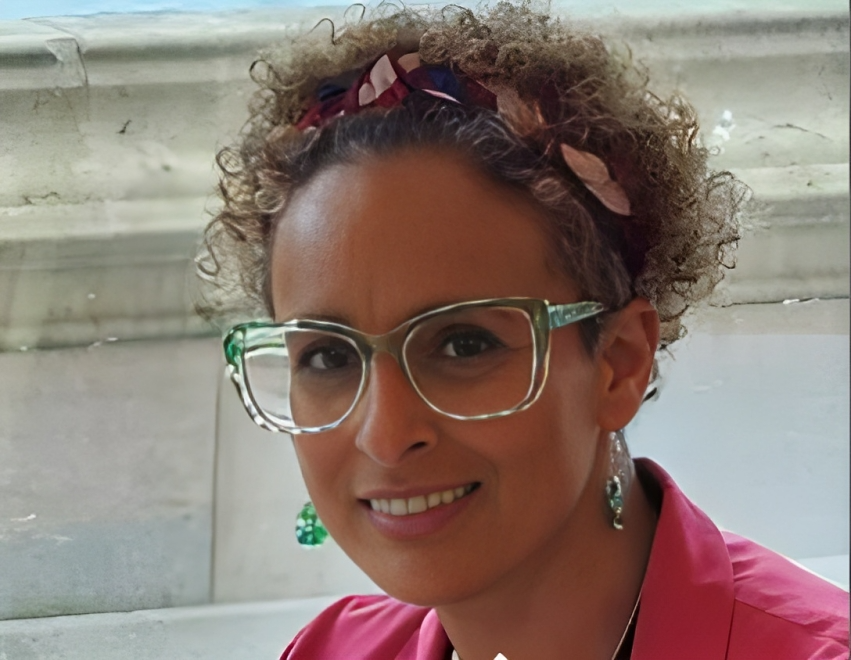Ofrah Muflahi
A new organization has been set up to represent and support Arab nursing and midwifery staff in the UK and make them more visible.
Registered nurse Ofrah Muflahi and her cousin Afrah Muflihi, a midwife, have created the British Arab Nursing and Midwifery Association (BANMA).
“Career progression is really challenging when you look different, even if you have the same skillset and qualifications”
The pair, who have more than 50 years of experience in health care, said they saw a need for improving career progression and discrimination in the workplace for this group.
The Nursing and Midwifery Council only made it possible in 2021-22 for registrants to identify themselves as being Arab.
Since then, the numbers have been increasing. In March 2023, 588 nursing and midwifery professionals were on the register as being Arab, up from 393 in 2022, an increase of 49.6%.
BANMA has now formed, but not yet formally launched, to bring British Arab nursing and midwifery staff together, find out their most pressing concerns, and work towards fixing them.
Ofrah Muflahi, who is based in the Midlands, told Nursing Times she felt navigating the NHS as an ethnic minority nurse was easier when she first became a nurse decades ago than it is today.
“Things have gotten progressively worse,” she said.
“Whilst boards are trying to shape and change the narrative around racism by putting in strategies in place, we see a part BANMA can play to help.
“Part of it is making sure we are given the same opportunities and that the same doors are open to that our White colleagues have. There are a lot of challenges.”
As someone working at the board level as a non-executive director, Ms. Muflahi said she struggled to find other people from her ethnic background in a similar position.
Visibility is something Ms Muflahi said BANMA would focus on. She added that Arab nurses – unlike medics – were “not seen or heard”.
“BANMA will be working on this. There are lots of Arab doctors out there, and we want to make sure we get the same visibility acknowledgment, and opportunities, as colleagues from other groups,” she said.
“Career progression is really challenging when you look different, even if you have the same skillset and qualifications.”
Ms. Muflahi said that all levels of nursing and midwifery must represent the diversity of the population.

Afrah Muflihi, Equality, Diversity, and Inclusion Lead Midwife
at Sandwell and West Birmingham Hospitals Trust and BANMA co-founder
“We have a huge gap in nursing and midwifery,” she said.
“It’s got to be reflective of the multicultural Britain we live in.”
She added that improving the experiences of minority ethnic staff in the workplace was key to attracting the next generations of Arab-identifying people into nursing and midwifery.
“[Racism] is something I’ve experienced but Afrah wears a hijab, she’s visibly a Muslim and Arab,” added Ms Muflahi.
“She will have faced different challenges to me, and where I’m able to navigate the system a bit better because I don’t look visibly [Arab] in my attire, although my skin color. And we hear anecdotally that many colleagues are joining other groups… so they can talk about the inequalities in healthcare they face.
“We don’t want the younger generations to see that as an obstacle to go into nursing or midwifery.
“Afrah and I were never encouraged to go into nursing or midwifery. I went into it because of exposure to the hospital when my mother went in and out – but we want to make sure it becomes a career of choice for Arabs in the community.
“My identity is Arab, and I would want to be supported by someone who understands me.”
“We don’t want the younger generations to see that as an obstacle to go into nursing or midwifery”
As a result, Ms. Muflahi said BANMA would focus both on aiding those already within the health service and outreach to people who might otherwise see a lack of senior diversity in the NHS and be put off.
Her concerns, and aims with BANMA, align with that of other international nursing and midwifery associations (INMAs), such as the Caribbean Nurses and Midwives Association (CNMA).
CNMA’s founder Paulette Lewis recently spoke to Nursing Times about the problems facing her community such as racism and adjusting to life in the UK on arrival from overseas.
Ms. Muflahi continued that, as well as these issues, she hoped her organization could be a support network for the unique challenges the Arab community faces.
She added: “We have nursing colleagues coming from war-torn areas like Syria and Iraq, and they come with a lot more challenges and complexity, and we want to be there.
“While Arabs are a smaller cohort, as nursing has more people from India and the Philippines, Arabs have been coming here since the late 18th century; that visibility, though, isn’t evident, and it’s important that we change that.”
BANMA is set to launch later this year, having successfully applied for small grant funding with the Florence Nightingale Foundation, which supports INMAs.
Ms. Muflahi said the organization would use this money to help grow its membership and begin its outreach work with the British Arab community.

